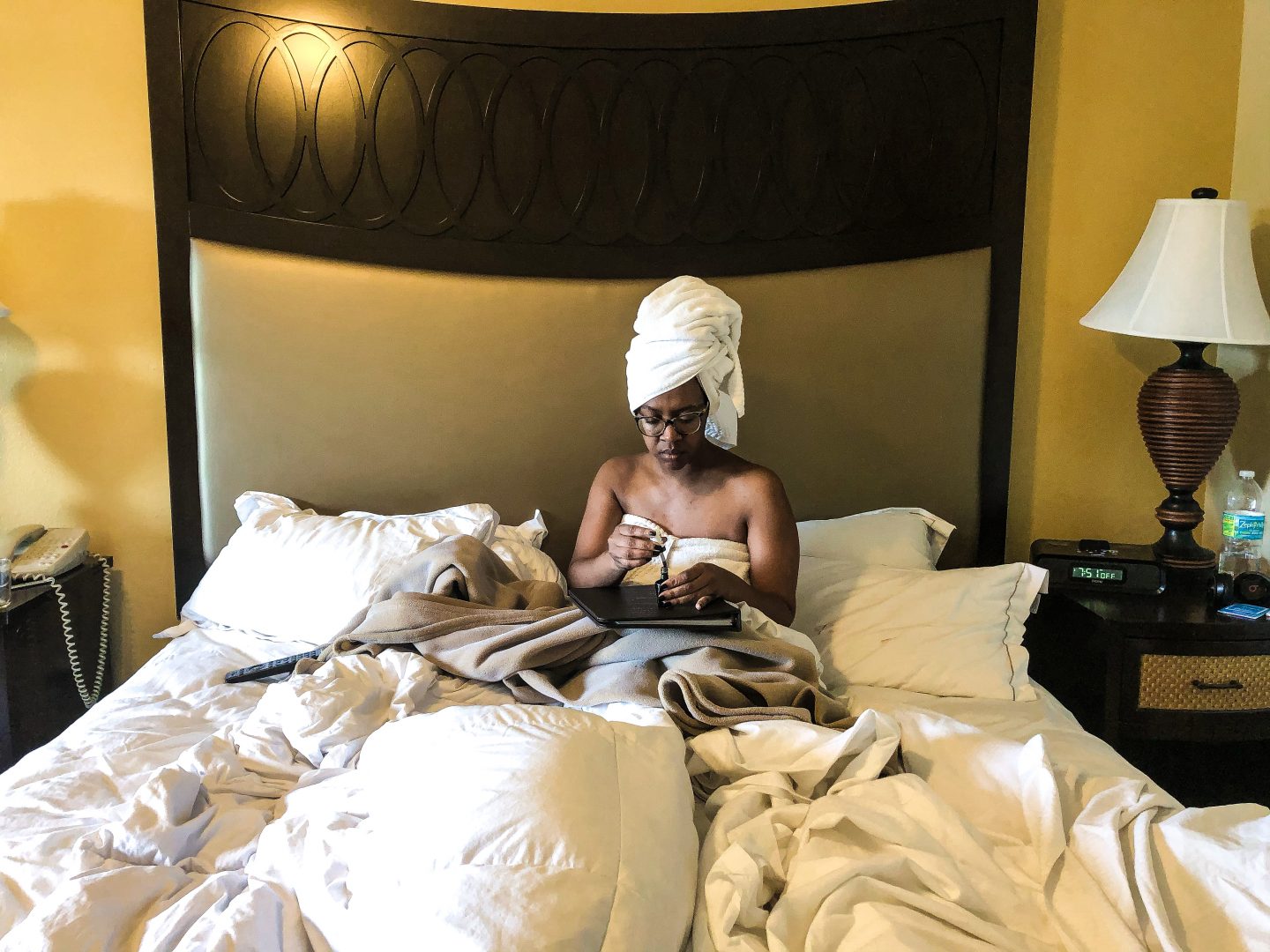
Even before Covid-19 hit, there were a lot of stresses and anxieties in the Black community. Racial injustices, healthcare deficiencies, financial deficits, to name a few. With the rise, and spread, of a pandemic that is wiping out the Black community at a rate 2.4 times as high as the rate for White individuals and 2.2 times as high as the rate for Asians and Latinos according to a report issued by the American Public Media Research lab, another issue plaguing the Black community has come to light. The lack of addressing Black mental health.
Growing up, practicing self care wasn’t a thing and taking time for yourself was seen as you being selfish. Therapy wasn’t something that was discussed, neither in a positive nor negative light, though I do recall watching various shows and movies where therapy was talked about as something “White people do”. I’m not sure if that was because it was seen as a luxury Black people couldn’t afford or if it was because Black people were going, they were just too ashamed to admit it.
I’m an insanely analytical person and I’m not ashamed to admit when I’m frustrated, stressed, or anxious about something, I talk about it with myself. I will have full blown conversations with myself trying to analyze situations and see them from all angles. I’m the queen of the pro|con list. I’m also not ashamed to admit there comes a time when you’re just too biased or too close to a situation to really see it for what it is and talking to yourself just isn’t going to cut it.
My breaking point
I’ve had problems with anxiety for a while. Sometimes I know what’s going to trigger it and others I simply don’t. About 10 years ago I had a panic attack so bad I ended up in the emergency room thinking I was having a heart attack. I took the medication given at the hospital but didn’t fill my prescription for Oxycontin because of the many people I’d heard had gotten addicted to it when I was in high school.
I’d gotten so stressed with co-parenting my then toddlers with their father, trying to find a sitter in order to work my low paying job that basically took my entire paycheck, and just life in general. I’ve always been a bit of a loaner and with no one to talk to, everything just felt like too much. Those feelings re-emerged during the pandemic, when I was suddenly working from home and my children were too. It got to the point I didn’t want to be around anyone for any reason for a couple of days, I just wanted to lay in bed, escaping into reality tv, so I could feel sorry for them and their train wreck like lives instead of dealing with my own issues.
Why aren’t Black mental health issues being addressed?
I knew I HAD to do something a bit more productive for my mental health and that thing for me was seeking out virtual therapy through Betterhelp. More often than not though, addressing Black mental health doesn’t happen as fast, or at all, for many. According to the CDC, 58.2 percent of Black and African American young adults 18-25 and 50.1 percent of adults 26-49 with serious mental illness did NOT receive treatment. Aside from it being viewed as something not done in the Black community, many are apprehensive about seeking help, especially Black men, due to the stigma attached to it – you’re weak or there’s something wrong with you if you need therapy.
Fewer than 2% of Psychologist identify as Black, so some feel those in the mental health profession aren’t aware enough to deal with the issues facing them. Where that’s not an issue, getting needed care, tests or treatment often times can be. 11.5 percent of Black and African Americans, versus 7.5 percent of white Americans, were still uninsured as recent as 2018, so even if the other issues weren’t a barrier, the lack of insurance usually is.
Addressing Black mental health issues in myself
Addressing Black mental health can certainly be an issue, but I didn’t want to pass the stigmas and stereotypes on to my children. Virtual therapy was right for me, not just because the pandemic was preventing me from going places but because it allowed me to feel more comfortable being able to choose the place I wanted to speak with my therapist. I was given the option to select the race and gender of my therapist, so choosing someone I felt could understand issues I faced as a Black woman in the world wasn’t an issue. It was not covered by my insurance, so I do have to pay out of pocket. When I became furloughed from my job, I was able to get financial aid to lessen the financial burden and because prioritizing my mental health is of the utmost importance to me, it’s an expense I gladly budgeted in.
Betterhelp monthly membership: $160 a month (with financial aid) with unlimited mobile access to my therapist during that time
——————————————————————————————————————-
If you are interested in addressing Black mental health within yourself, or seeking to provide information to a loved one, please look into the following resources:
Black Emotional and Mental Health Collective (BEAM) | a collective of advocates, yoga teachers, artists, therapists, lawyers, religious leaders, teachers, psychologists and activists committed to the emotional/mental health and healing of Black communities
Therapy for Black Girls | online space dedicated to encouraging the mental wellness of Black women and girls
National Queer and Trans Therapists of Color Network | a healing justice organization committed to transforming mental health for queer and trans people of color (QTPoC)
Therapy for Black Men | therapist directory for Black men seeking therapy

